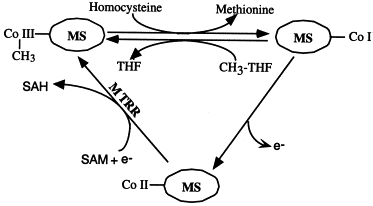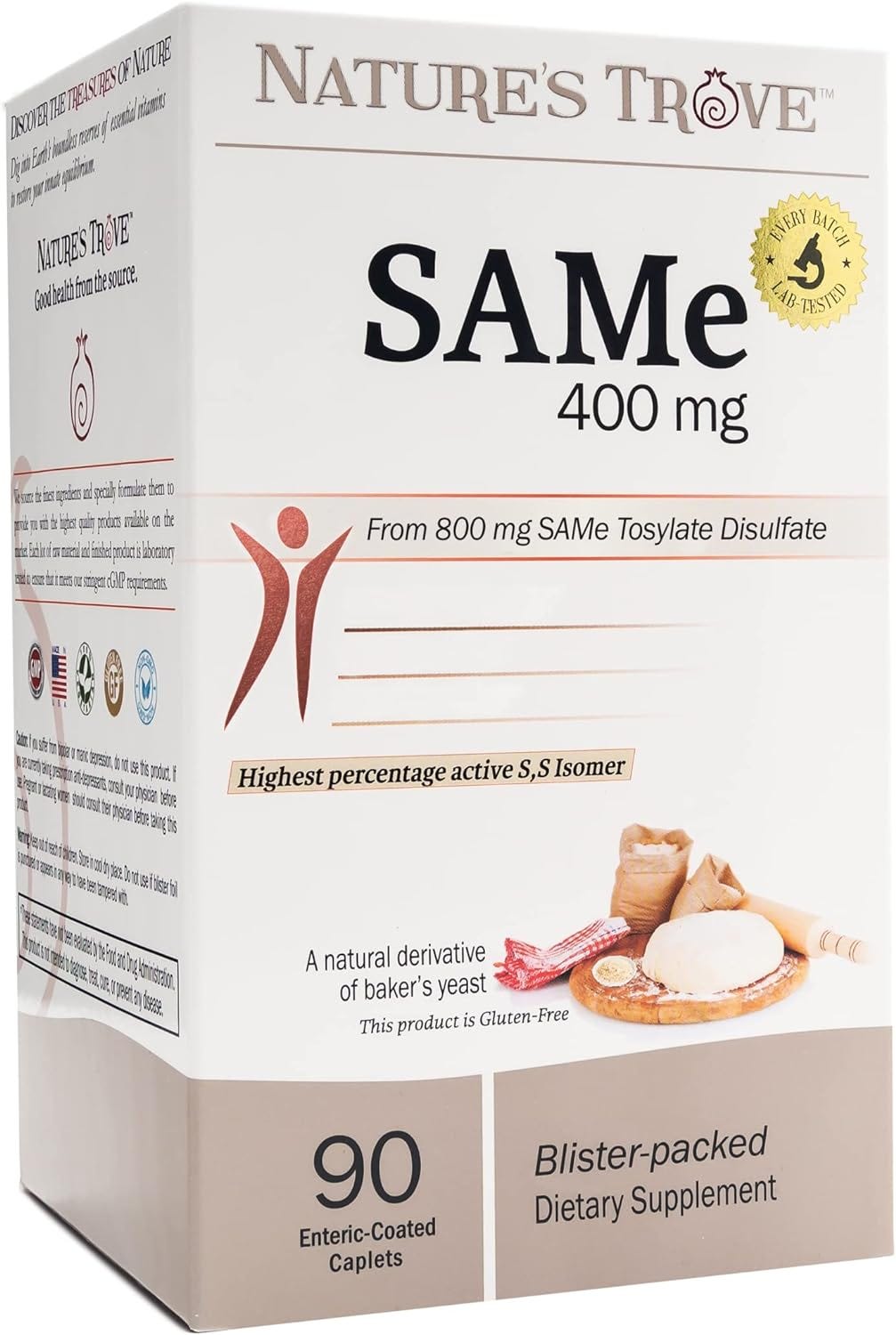Understanding MTRR, Methionine Synthase, and SAM-e
1. The MTRR Gene and Why It Matters
The MTRR (methionine synthase reductase) gene contains instructions for making an enzyme that helps keep methionine synthase active. Methionine synthase is vital for converting homocysteine into methionine—and methionine is a crucial stepping stone to S-adenosylmethionine (SAM-e).
If MTRR is homozygous mutant
Methionine synthase can’t recycle properly.
The conversion from homocysteine to methionine drops.
Result: Lower methionine and subsequently lower SAM-e availability.
2. Why SAM-e (S-Adenosylmethionine) Is Important
SAM-e is often called the body’s “universal methyl donor.” It donates methyl groups used in over 100 methylation reactions, including:
DNA Methylation: Influences gene expression and cell repair.
Neurotransmitter Regulation: Impacts mood, cognition, and energy levels.
Detoxification: Helps with various liver detox pathways.
Bottom Line: Low SAM-e due to a dysfunctional MTRR gene can contribute to mood imbalances, fatigue, and a general decrease in methylation capacity.
3. The Methylation Cycle in a Nutshell
The simplified diagram of the methionine cycle is often represented like this:
Homocysteine → (Methionine Synthase + MTRR) → Methionine → SAM-e
If MTRR doesn’t work well:
Homocysteine → (X) → Methionine = blocked
Then SAM-e production suffers.
4. Consequences of Reduced SAM-e
Potential Mental Health Effects: SAM-e supports neurotransmitter production; a deficiency might worsen depression or anxiety.
Lower Methylation: Slows the body’s ability to repair DNA and regulate genes.
Fatigue & Low Energy: Without enough SAM-e, entire metabolic pathways can lag, causing persistent tiredness.
5. Supplementing with SAM-e—A Two-Edged Sword
Positive Side: For many with MTRR mutations, adding a low-dose SAM-e supplement can quickly relieve mood issues, boost energy, and restore balanced methylation.
Potential Risks: In about 30–40% of cases (per my clinical observations), SAM-e can trigger severe depression, agitation, or even suicidal thoughts.
Warning
If you try SAM-e (e.g., 200 mg to start), monitor your mood closely for at least 3–7 days. If you notice a dark turn—intense depression or anxiety—stop immediately and consult your healthcare provider.
6. Practical Tips
Genetic Testing: Confirm whether you are homozygous for MTRR. This helps you understand why your SAM-e might be low.
Start Slow: Begin with a small dose (like 200 mg once daily) of a clean, reputable SAM-e.
Check Methylation Co-factors: Ensure adequate folate (5-MTHF), B12 (methylcobalamin), and B6. They all help support methionine synthase and overall methylation.
Stay Alert: Watch for any mood changes. If they arise, discontinue and consult a professional.
7. Key Takeaways
MTRR is essential for methionine synthase function. A homozygous MTRR mutation can block the homocysteine → methionine → SAM-e pathway.
SAM-e is vital for mood, DNA repair, and countless other methylation reactions.
Supplementing with SAM-e can be transformative or disastrous—start low, watch mood changes, and always proceed under medical guidance.
Disclaimer
This blog post is intended for educational purposes only. Always consult with a qualified healthcare provider before making significant changes to your supplement routine, especially if you have known genetic variants like MTRR.
By understanding the MTRR → Methionine Synthase → SAM-e chain, you’re better equipped to tackle the root causes of mood, energy, and methylation concerns—rather than just treating the symptoms.





